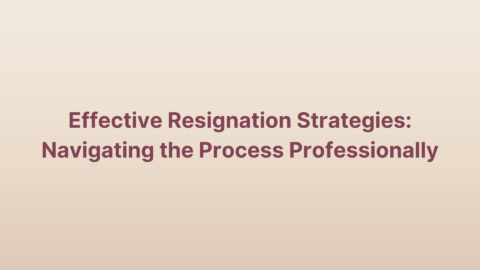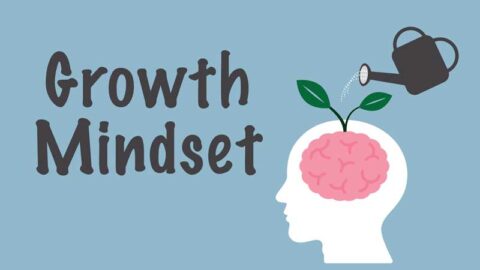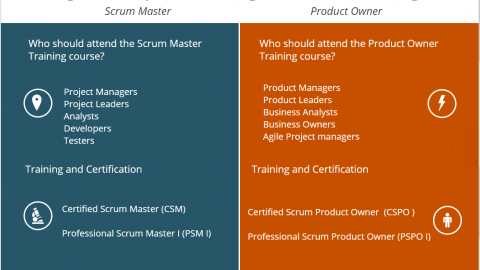Should You Treat Your CAREER as a PROJECT?
I bet many of you thought the answer to the question is a YES, but the truth is, if you treat your career as a project, it will be a short lived one and while you might survive, your career won’t flourish. Instead, everyone should treat their career as a Program. Let me start with some basic definitions so you can make sense of what’s coming next regarding career planning:
Table of Contents
What is a project?
By nature, a Project is a temporary undertaking to achieve a certain outcome with a beginning and an end. Normally, projects are short term. Your professional life can be successfully guided by an effective career plan, from the process of getting your first job to the experience of enjoying a happy career. You will be able to take actions to examine your professional possibilities and establish a strategic plan for reaching your goals if you plan your career carefully and take steps to do so.
What is a Program?
A program is a set of related projects, subprograms, and activities or related measures that are established for the aim of achieving long terms goals that are not achievable if those components were managed individually.
What is the difference between a Career as Project and a Job?
Many believe that a job and a career are the same but in fact, they are not. A job is simply a means for earning money while a career is your path towards long-term success and growth. In your job, you aim to work hard to standout, earn more money, and get a higher raise or bonus while in building your career, things work differently and the investments you make are at a different level and the benefits are intangible short term but will translate into monetary tangible long-term benefits.
By now, you probably started to realize as to why you should treat your career as a program. Unlike your career, you can surely treat your job as a project with short-term outcomes.
If you are ambitious and have long-term vision and goals for your professional career, then treating it as a program will serve you best. Under the main program, there could be many projects, subprograms, and activities to help you realize the intended benefits so how can you plan this program?
Below are the main steps, in sequence, as to how you can plan your career as a program:
Step (1) – Goals and Benefits of Seeing Career as a Project
Define your goals, and based on those goals, establish the anticipated benefits. Below are a few examples of some goals and/or benefits:
- Get promoted from Junior Project Manager to Senior Project Manager.
- Achieve a salary of $100,000 USD within 5 years.
- Specialize in a certain industry or field.
- Establish a side gig (own company) by certain year.
- Become a consultant in 10 years time.
It is important to make sure your goals and benefits are measurable and time bound.
Step (2) – Program Components
Establish your program components which could include, but not limited to, the following:
- Professional Development for Career as a Project
- Courses
- Credentials
- Conferences
- Seminars
- Webinars
- Current Job
- Own Business
- Others
Step (3) – Program Roadmap
Then, link your benefits to the components and establish a roadmap with milestone dates. This will be your guide.
Step (4) – Metrics and KPIs
Establish key performance indicators that will help you measure the progress towards your benefits realization. Below are some examples of questions which you can ask yourself to establish those KPIs:
- Am I enhancing my knowledge and expertise in the field I love at a satisfactory pace? (You need to define what this pace is).
- Is my progress towards achieving a certain credential acceptable and will I complete the credential by the set milestone date?
- Is my last salary increment and job performance review supportive of achieving my current job goals in the next two years?
Step (5) – Monitoring
You should use your KPIs to measure your performance towards achieving your goals and remember this: Your career as a project is dynamic which means that you should always inspect and adapt to ensure what is going is be realized is going to be of value to you.
Step (6) – Sustainment
Remember, what’s more important than reaching the top is staying there so make sure you establish measures to sustain or enhance the benefits you realized.
Establishing a plan for your career and continuously inspecting and adapting is a very important, if not the most important part, of your success especially in the rapidly evolving world we currently live in.
Maintain easy access to your career action plan so that you may regularly evaluate its effectiveness. Mark off each step as you finish it, and make sure to give yourself a reward for each success, no matter how big or how small.
Your action plan for your career should be revisited and updated as needed. Changes in one’s critical career planning may require a change as a result of a variety of factors, including but not limited to new possibilities, technological improvements, personal priorities, and trends in
Conclusion: How to Build Your Career as a Project or Program?
So, there are two classic ways in which a person might grow their skills and advance their position within an organization. These are pathways and ladders. Career ladders are the progression of occupations inside an organization’s unique occupational fields, rated from highest to lowest depending on level of responsibility and income. And they move from the most senior to the most junior position. Hence, these are one of the most common types of career progression. But there are also dual career ladders, horizontal career lattices, career progression outside of the organization, and encore careers. Yet career paths contain all of these different types of career development.
Rami Kaibni is a certified Senior Program and Project Management Professional, Agile Trainer, Career Coach and Professional Development Mentor holding a bachelor’s degree in Structural Engineering and over 17 years of hands-on experience in Portfolio/Program/Project Management, Construction Management, Business Development and Professional Development/Career Coaching.
Rami is also the founder and executive coach at RMK Coaching besides working as a full time Project Management Consultant with a consulting firm out of British Columbia, Canada and holding multiple key volunteer positions with global organizations.










